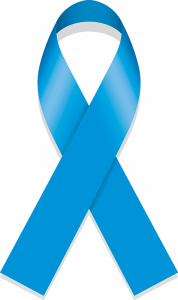Decline follows recommendation against routine screening, but experts not sure if trend is good or bad
 Diagnoses of early prostate cancer continue to decline in the United States, following the U.S. Preventive Services Task Force recommendation against routine screening for the disease, researchers report.
Diagnoses of early prostate cancer continue to decline in the United States, following the U.S. Preventive Services Task Force recommendation against routine screening for the disease, researchers report.
The screening involves a blood test that identifies levels of PSA (prostate specific antigen), a protein produced by the prostate gland. That test can determine when cancer exists, but it often wrongly identifies nonexistent cancer.
These “false positive” results can cause anxiety and lead to unnecessary follow-up tests. Because of this, the task force issued a draft recommendation against routine screening in 2011 and a final guideline in 2012.
Since then, diagnoses of early prostate cancer in American men aged 50 and older dropped by 19 percent between 2011 and 2012 and by another 6 percent the following year, said lead researcher Ahmedin Jemal. He is a physician and vice president of the American Cancer Society’s surveillance and health services research program.
But while many men may have been spared unnecessary anguish, less frequent screening may have a downside. Some experts worry more men will develop potentially fatal prostate cancer as a result.
“Prostate cancer is a slow-growing tumor, so it takes time. We may see it over the next three to five years,” Jemal said.
There is a balance in the task force recommendation, said Anthony D’Amico, chief of genitourinary radiation oncology at Brigham and Women’s Hospital and the Dana Farber Cancer Institute, in Boston.
“Some men who should not be treated are not being diagnosed, but that also means some men who should be treated are either losing the chance for cure or presenting later and needing to undergo more treatment and more side effects for a possible cure,” he said.
“The answer to this dilemma will come with personalized medicine based on risk-based screening — screening men preferentially in good health and at high risk,” D’Amico added.

